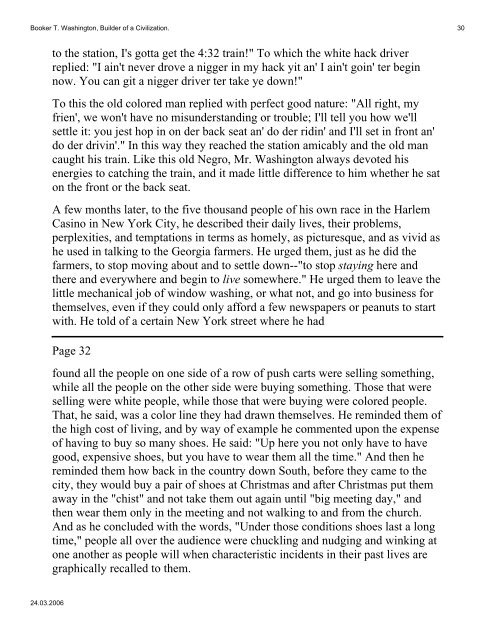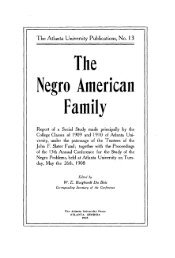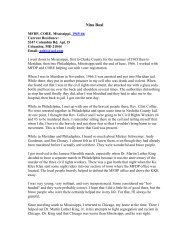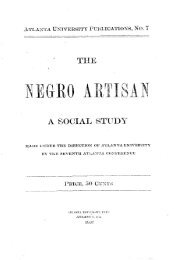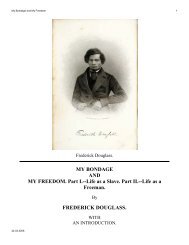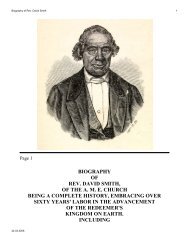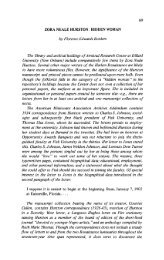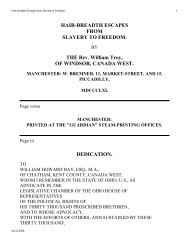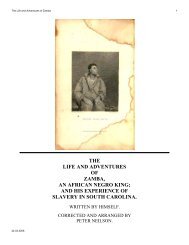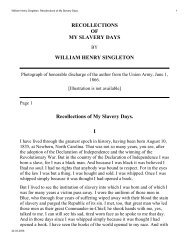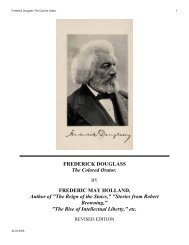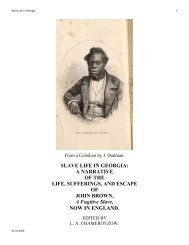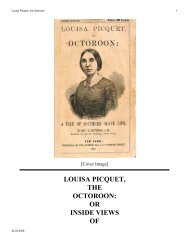Booker T. Washington, Builder o - African American History
Booker T. Washington, Builder o - African American History
Booker T. Washington, Builder o - African American History
You also want an ePaper? Increase the reach of your titles
YUMPU automatically turns print PDFs into web optimized ePapers that Google loves.
<strong>Booker</strong> T. <strong>Washington</strong>, <strong>Builder</strong> of a Civilization. 30<br />
to the station, I's gotta get the 4:32 train!" To which the white hack driver<br />
replied: "I ain't never drove a nigger in my hack yit an' I ain't goin' ter begin<br />
now. You can git a nigger driver ter take ye down!"<br />
To this the old colored man replied with perfect good nature: "All right, my<br />
frien', we won't have no misunderstanding or trouble; I'll tell you how we'll<br />
settle it: you jest hop in on der back seat an' do der ridin' and I'll set in front an'<br />
do der drivin'." In this way they reached the station amicably and the old man<br />
caught his train. Like this old Negro, Mr. <strong>Washington</strong> always devoted his<br />
energies to catching the train, and it made little difference to him whether he sat<br />
on the front or the back seat.<br />
A few months later, to the five thousand people of his own race in the Harlem<br />
Casino in New York City, he described their daily lives, their problems,<br />
perplexities, and temptations in terms as homely, as picturesque, and as vivid as<br />
he used in talking to the Georgia farmers. He urged them, just as he did the<br />
farmers, to stop moving about and to settle down--"to stop staying here and<br />
there and everywhere and begin to live somewhere." He urged them to leave the<br />
little mechanical job of window washing, or what not, and go into business for<br />
themselves, even if they could only afford a few newspapers or peanuts to start<br />
with. He told of a certain New York street where he had<br />
Page 32<br />
found all the people on one side of a row of push carts were selling something,<br />
while all the people on the other side were buying something. Those that were<br />
selling were white people, while those that were buying were colored people.<br />
That, he said, was a color line they had drawn themselves. He reminded them of<br />
the high cost of living, and by way of example he commented upon the expense<br />
of having to buy so many shoes. He said: "Up here you not only have to have<br />
good, expensive shoes, but you have to wear them all the time." And then he<br />
reminded them how back in the country down South, before they came to the<br />
city, they would buy a pair of shoes at Christmas and after Christmas put them<br />
away in the "chist" and not take them out again until "big meeting day," and<br />
then wear them only in the meeting and not walking to and from the church.<br />
And as he concluded with the words, "Under those conditions shoes last a long<br />
time," people all over the audience were chuckling and nudging and winking at<br />
one another as people will when characteristic incidents in their past lives are<br />
graphically recalled to them.<br />
24.03.2006


